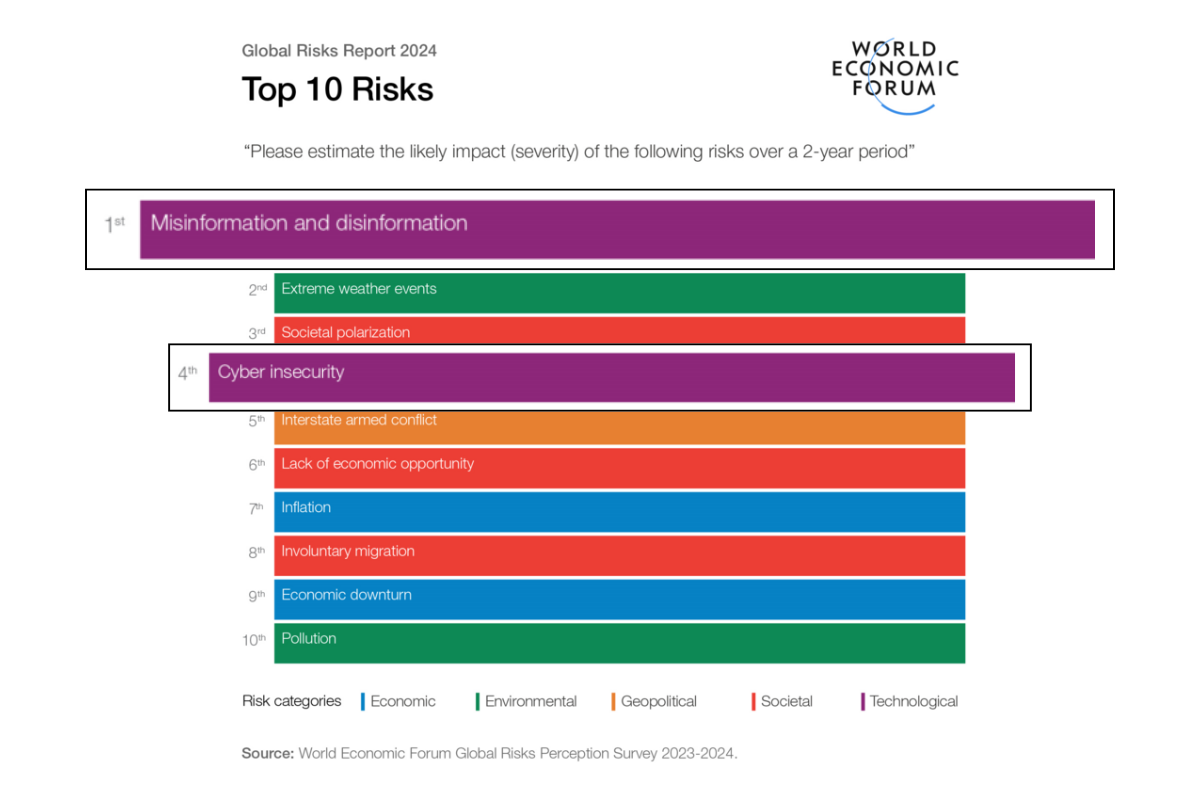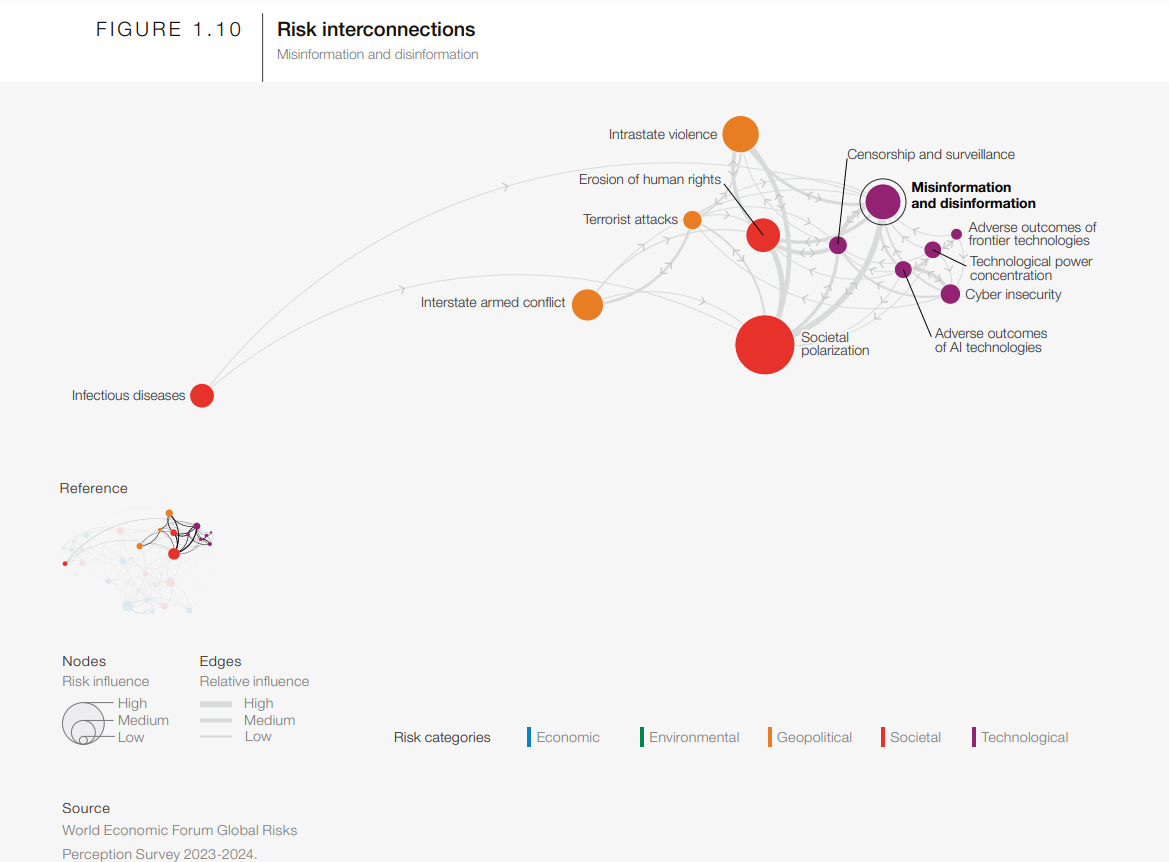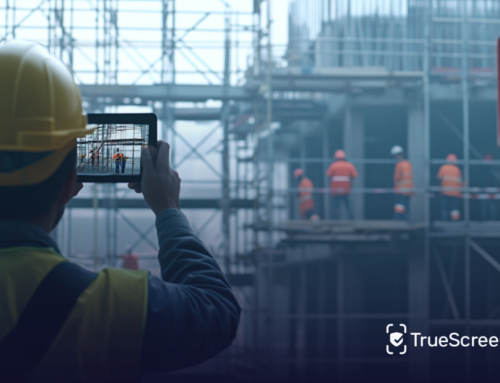According to the World Economic Forum’s Global Risks Report 2024, misinformation and data manipulation are the top short-term global risks—a threat that will only grow as technology advances and digital data becomes easier to alter. This spread of false information not only undermines public and institutional trust but also risks economic and political stability on a global scale. The report draws from insights provided by over 1,400 experts, political leaders, and academics who identify misinformation as one of the most pressing threats to economies and society.

Easy Access to Manipulation Tools and the Impact on Digital Truth
A core issue is the easy access to advanced media editing tools. While digital manipulation once required specific skills and complex programs, today’s user-friendly editing software allows even inexperienced users to alter photos, videos, and documents in just a few clicks. The availability of accessible editing tools has drastically lowered the technical knowledge required to alter digital content, increasing the risk of widespread misinformation.
Although AI is often seen as a driver of modern misinformation, the World Economic Forum highlights that the impact of manipulation is heightened through intuitive editing software. These programs can alter not only visual and audio content but also metadata, such as date, location, and author information. These details, which may seem unchangeable, are actually easy to edit with commonly available tools, making it difficult for users, companies, and authorities to verify the authenticity and origin of images, screenshots, videos, and documents. This growing challenge of distinguishing between real and falsified content poses a significant risk.
Misinformation in Politics and Media: A Threat to Stability
The impact of misinformation is particularly severe in politics and media. In a world where social media thrives on viral content, manipulated news can spread globally in a matter of hours. According to the World Economic Forum, the risk associated with misinformation is especially critical during election periods and geopolitical crises, where false news and distorted information can heavily influence public opinion and voter decisions.

This manipulation not only erodes trust between citizens and institutions but also increases social polarization, dividing societies from within. The report emphasizes how misinformation fosters distrust toward media and democratic institutions, undermining the foundations of civil society. With citizens finding it increasingly difficult to separate fact from distorted opinion, social divisions grow deeper. This unstable environment is further aggravated by technology-enabled “deepfake” content, where fake audio and video are nearly indistinguishable from real recordings, underscoring the need for a global response beyond simply monitoring information flow.
Economic and Commercial Impacts of Data Manipulation
Misinformation and data manipulation also affect the economic and commercial spheres. In sectors like banking, insurance, and telecommunications, data authenticity is essential for day-to-day operations. In a context where information can be easily falsified, companies face significant challenges in ensuring transparency and data reliability. For instance, insurance fraud, legal disputes, and tampered contracts are becoming more frequent, causing both reputational and economic harm.
The insurance industry, in particular, is highly exposed to the risks of data manipulation, as falsified documentation can alter the legitimacy of claims and disrupt the claims process. The rise in legal cases based on manipulated evidence is one of the direct consequences of easy-to-use editing and modification tools. Companies, therefore, must invest in solutions that can certify and safeguard the authenticity of exchanged data to maintain customer trust and protect their operations from fraud and disputes.
TrueScreen: A Possible Solution for Certified Authenticity
In response to these rising risks, solutions like TrueScreen enable companies to ensure the authenticity and reliability of data through patented forensic methodology. TrueScreen allows companies to certify photos, videos, documents, and digital signatures directly at the source, guaranteeing that captured data is both authentic and unmodifiable. This technology empowers companies to protect against unauthorized tampering and certify the data used in critical decisions, especially in areas like legal disputes, inspections, and contract management. Additionally, TrueScreen is designed to integrate easily with company IT systems, allowing businesses to quickly adapt to the growing need for transparency and security in handling digital information.



